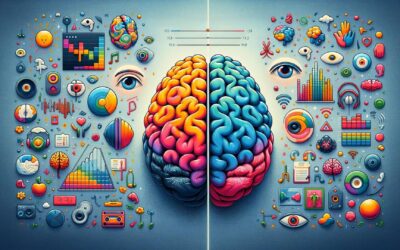- The Power of Neuroplasticity: Beyond the Science
- Real-Life Examples of Neuroplasticity in Action
- The Role of Neuroplasticity in Professional Growth
- Cultivating a Neuroplastic Mindset
- Conclusion: Your Brain, Your Path
- Why Should You Care?
- Key Takeaways
- Keywords and Definitions
- Frequently Asked Questions
- Myth Buster
- Let’s Talk
Imagine your brain as a dynamic, ever-changing landscape, continuously reshaping itself in response to your experiences, learning, and the environment. This remarkable ability is known as neuroplasticity, and it’s the foundation of lifelong learning. Understanding how neuroplasticity works can revolutionize the way you approach personal and professional development, learning, and even recovery from brain injuries.
The Power of Neuroplasticity: Beyond the Science
Neuroplasticity is not just a scientific concept; it’s a testament to the brain’s remarkable capacity to adapt and evolve throughout life. Every time you learn a new skill, whether it’s playing a musical instrument, speaking a foreign language, or mastering a new software, your brain forms new connections and strengthens existing ones. This adaptability is what makes continuous learning and self-improvement possible at any age.
Real-Life Examples of Neuroplasticity in Action
- Learning New Languages: Studies have shown that bilingual individuals have denser grey matter in certain brain regions. Learning a new language can enhance cognitive functions and even delay the onset of dementia.
- Recovery from Brain Injuries: Remarkable stories of recovery post-brain injury, where patients relearn basic skills like walking and talking, underscore neuroplasticity’s role in rehabilitation.
- Skill Acquisition in Adults: Adults learning to play a musical instrument show changes in brain structure and function, proving that the adult brain is still very much capable of significant change and development.
The Role of Neuroplasticity in Professional Growth
In the professional realm, embracing the concept of neuroplasticity means acknowledging that you can continuously acquire new skills and adapt to changes. It fosters a growth mindset, essential in today’s rapidly changing job market. For instance, a marketer learning to use new data analysis tools can adapt to the evolving digital landscape, ensuring their skills remain relevant and competitive.
Cultivating a Neuroplastic Mindset
To harness the power of neuroplasticity, it’s important to:
- Embrace Challenges: View challenges as opportunities to strengthen your brain.
- Stay Curious: Continuous learning and curiosity keep your brain engaged and adaptable.
- Maintain a Healthy Lifestyle: Regular exercise, a balanced diet, and adequate sleep are crucial for neuroplasticity.
Conclusion: Your Brain, Your Path
Your brain’s ability to adapt and grow doesn’t diminish with age; it just requires consistent engagement. Embrace the concept of neuroplasticity and see yourself as a lifelong learner. Challenge yourself to learn something new, step out of your comfort zone, and keep your brain active and agile. Remember, the journey of lifelong learning is not just about accumulating knowledge; it’s about empowering your brain to keep evolving. Start today – pick up a new hobby, enroll in a course, or simply read about something outside your usual interests. The path to harnessing your brain’s full potential is endless and incredibly rewarding.
Why Should You Care?
Understanding neuroplasticity is crucial because it empowers you to take control of your brain’s development and adaptability. It proves that learning and cognitive growth are possible at any age, challenging the notion that brain development is limited to childhood. This knowledge is vital for personal growth, professional adaptability, and recovery from injuries, making it a key component of a fulfilling, productive life.
Key Takeaways
- Neuroplasticity is the brain’s ability to reorganize itself by forming new neural connections throughout life.
- Lifelong learning is not just a concept but a practical approach to continuous self-improvement and skill acquisition.
- Learning new skills, languages, or musical instruments can physically alter the structure of the brain.
- Neuroplasticity plays a crucial role in recovery from brain injuries.
- Adopting a growth mindset and staying curious are essential for fostering neuroplasticity.
- Regular exercise, a balanced diet, and adequate sleep support brain health and neuroplasticity.
- Challenges and new experiences are opportunities to strengthen and enhance the brain’s capabilities.
- Professional growth in today’s evolving job market is heavily reliant on the ability to learn and adapt, which is underpinned by neuroplasticity.
- Neuroplasticity shows that cognitive decline is not an inevitable part of aging.
- Engaging in lifelong learning activities is key to maintaining a flexible and adaptable brain.
Keywords and Definitions
- Neuroplasticity: The ability of the brain to form and reorganize synaptic connections, especially in response to learning or experience or following injury.
- Lifelong Learning: The ongoing, voluntary, and self-motivated pursuit of knowledge for personal or professional reasons.
- Growth Mindset: The belief that one’s abilities and intelligence can be developed through dedication and hard work.
- Cognitive Functions: Mental processes that include thinking, knowing, remembering, judging, and problem-solving.
- Grey Matter: A major component of the central nervous system, consisting mostly of neuronal cell bodies and involved in muscle control and sensory perception.
- Rehabilitation: The process of helping an individual achieve the highest level of function, independence, and quality of life possible after illness, injury, or surgery.
- Adaptability: The ability to adjust oneself readily to different conditions.
- Professional Growth: The process of improving and increasing capabilities of an individual in a career through education and experiences.
- Challenge: A task or situation that tests someone’s abilities.
- Mindset: The established set of attitudes held by someone.
Frequently Asked Questions
Can neuroplasticity decline with age?
While some aspects of neuroplasticity may diminish with age, the brain retains its ability to adapt and change throughout life. Engaging in new learning experiences and maintaining a healthy lifestyle can enhance neuroplasticity even in older age.
How does stress affect neuroplasticity?
Chronic stress can negatively impact neuroplasticity, leading to difficulties in learning and memory. Managing stress through mindfulness, exercise, and other coping strategies is important for maintaining a healthy, adaptable brain.
Can neuroplasticity help in treating mental health conditions?
Neuroplasticity plays a role in the treatment of mental health conditions. Therapies like cognitive-behavioral therapy (CBT) leverage neuroplasticity to change thought patterns and behaviors.
Myth Buster
Myth: Only young brains are capable of significant neuroplasticity.
Reality: While neuroplasticity is more pronounced in younger brains, adults can also significantly remodel their neural networks through learning and experience.
Myth: Intelligence is fixed and cannot be changed.
Reality: Intelligence is not fixed. Neuroplasticity shows that through learning and experience, cognitive abilities can be developed and enhanced at any age.
Let’s Talk
- How have you experienced neuroplasticity in your own life?
- What new skill or hobby would you like to learn to enhance your brain’s neuroplasticity?
- Do you believe that schools and workplaces do enough to encourage lifelong learning and neuroplasticity?
I encourage you to share your thoughts and experiences in the comments. Your insights can inspire others to embrace the concept of neuroplasticity and lifelong learning!










0 Comments